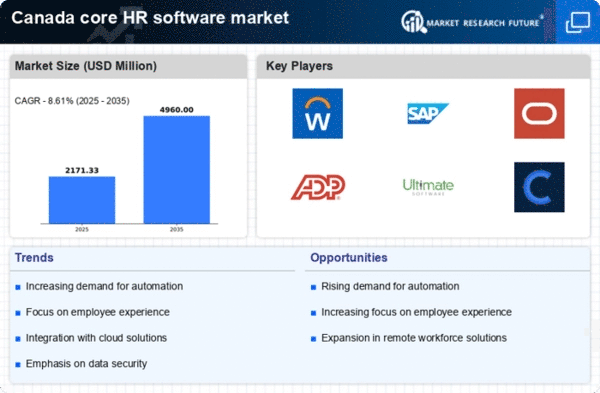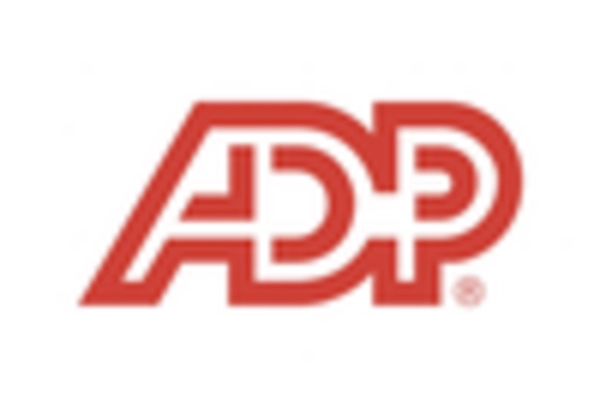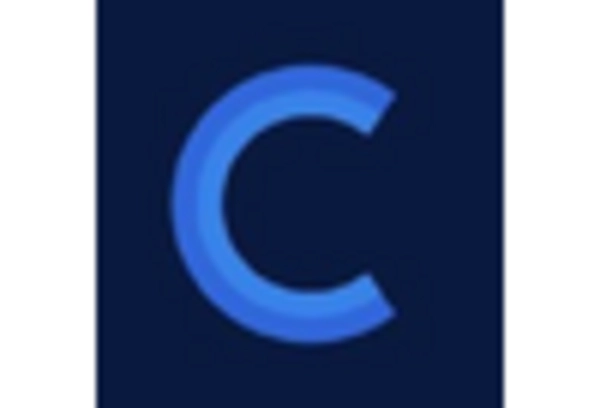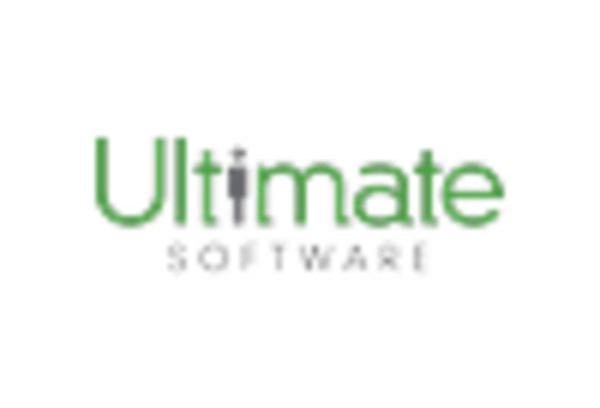Remote Work Trends
The rise of remote work is reshaping the core hr-software market landscape in Canada. As organizations adapt to flexible work arrangements, there is a growing need for hr-software that supports remote workforce management. Features such as virtual onboarding, performance tracking, and employee communication tools are becoming essential. In 2025, it is estimated that approximately 65% of Canadian companies will implement hr-software solutions specifically designed for remote work environments. This shift not only enhances employee productivity but also necessitates a reevaluation of traditional hr practices. Consequently, the core hr-software market is evolving to accommodate these new demands, offering solutions that facilitate effective remote work management.
Focus on Employee Well-being
The core hr-software market is increasingly focusing on employee well-being as organizations recognize its impact on productivity and retention. Canadian companies are investing in hr-software that includes wellness programs, mental health resources, and employee feedback mechanisms. In 2025, it is projected that around 55% of organizations will prioritize well-being features in their hr-software solutions. This trend reflects a broader understanding that employee satisfaction directly correlates with organizational success. As businesses strive to create supportive work environments, the core hr-software market is likely to expand its offerings to include comprehensive well-being solutions that address the holistic needs of employees.
Regulatory Compliance Demands
The core hr-software market in Canada is increasingly influenced by the need for regulatory compliance. Organizations are required to adhere to various labor laws and regulations, such as the Employment Standards Act and the Personal Information Protection and Electronic Documents Act. This compliance necessity drives the demand for robust hr-software solutions that can automate reporting and ensure adherence to legal requirements. In 2025, it is estimated that approximately 70% of Canadian businesses will prioritize compliance features in their hr-software, reflecting a growing trend towards accountability and transparency. As companies face potential penalties for non-compliance, the core hr-software market is likely to see a surge in demand for solutions that facilitate compliance management.
Workforce Diversity Initiatives
The core hr-software market is experiencing a notable shift due to the increasing emphasis on workforce diversity and inclusion. Canadian organizations are recognizing the importance of fostering diverse work environments, which has led to the implementation of targeted hiring practices and employee engagement strategies. In 2025, it is projected that around 60% of Canadian companies will utilize hr-software that includes features for tracking diversity metrics and promoting inclusive practices. This trend not only enhances organizational culture but also aligns with consumer expectations for corporate social responsibility. Consequently, the core hr-software market is adapting to meet these evolving needs, offering tools that support diversity initiatives and help organizations measure their progress.
Technological Advancements in HR
Technological advancements are significantly shaping the core hr-software market in Canada. The integration of artificial intelligence (AI) and machine learning (ML) into hr-software solutions is enhancing recruitment processes, employee engagement, and performance management. In 2025, it is anticipated that over 50% of hr-software users in Canada will leverage AI-driven tools for talent acquisition and employee analytics. These technologies enable organizations to make data-driven decisions, streamline operations, and improve overall efficiency. As businesses seek to remain competitive, the demand for innovative hr-software solutions that incorporate these technological advancements is likely to grow, driving further investment in the core hr-software market.
















